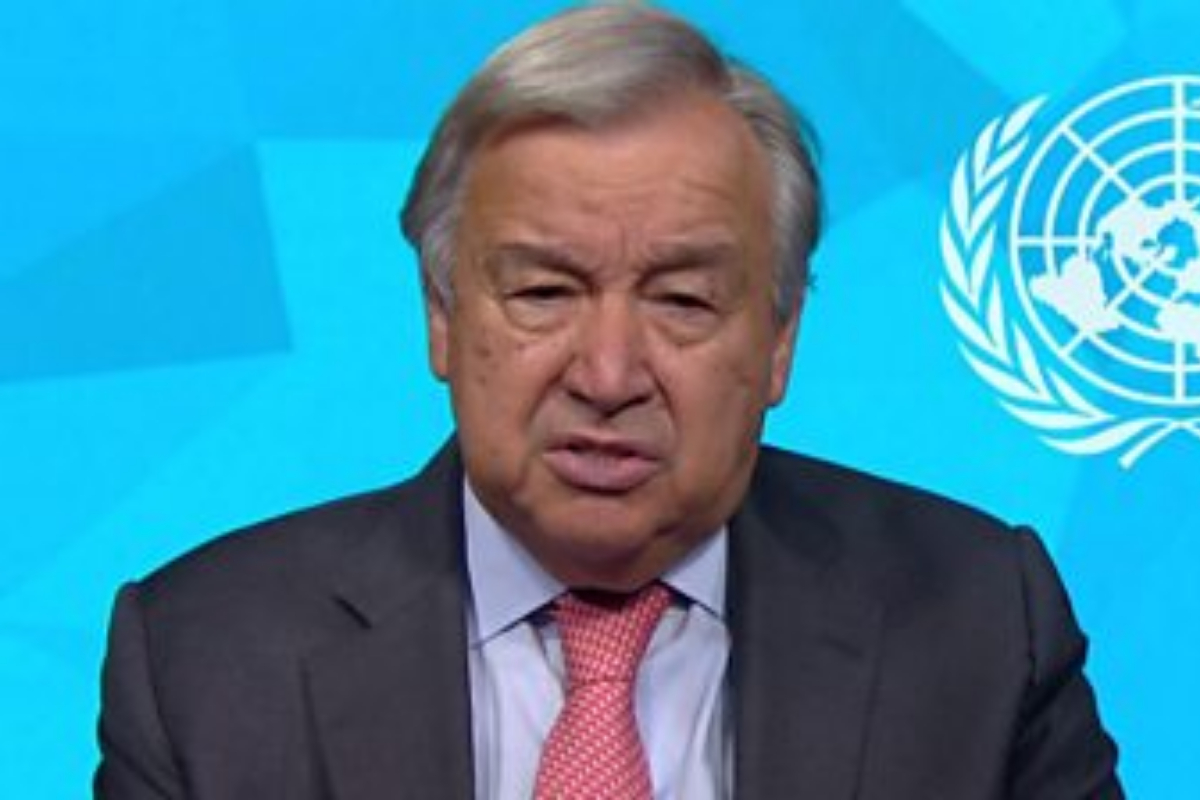- At least 1,136 people have been killed, and roads, crops, homes, and bridges have been washed away.
- Flooding has affected more than 33 million Pakistanis, or one in every seven people.
- Pakistan accounts for less than 1% of global greenhouse gas emissions but is among the most vulnerable countries to climate change.
The UN Secretary General has warned that Pakistan is facing “a monsoon on steroids” after floods submerged a third of the country.
Antonio Guterres urged the international community to come to Pakistan’s aid as he launched a $160 million appeal to assist the tens of millions affected by the disaster.
He attributed the disaster to “the relentless impact of epochal levels of rain and flooding.”
Since June, at least 1,136 people have been killed, and roads, crops, homes, and bridges have been washed away across the country.
This year’s monsoon is comparable to the devastating floods of 2010, which killed over 2,000 people and were the deadliest in Pakistan’s history.
Mr Guterres called South Asia a “climate crisis hotspot” where people were 15 times more likely to die as a result of climate change in a video message.
“Let’s stop sleepwalking towards the destruction of our planet by climate change. Today, it’s Pakistan. Tomorrow, it could be your country.”
He stated that the UN appeal aimed to provide food, water, sanitation, emergency education, and health care to 5.2 million people.
The Pakistani people are facing a monsoon on steroids. More than 1000 people have been killed – with millions more lives shattered.
This colossal crisis requires urgent, collective action to help the Government & people of Pakistan in their hour of need. pic.twitter.com/aVFFy4Irwa
— António Guterres (@antonioguterres) August 30, 2022
Flooding has affected more than 33 million Pakistanis, or one in every seven people, according to officials.
Sadia, a student in Quetta, Balochistan’s capital, said she felt helpless because her family was cut off in their home village of Jhal Magsi, which was about eight hours away.
“You can’t find a single home that is safe now,” she told the media. “They are under the sky with no help.
“Right now, we are in need of first aid relief like tents, some shelter and some basic food, they can’t cook anything. And they need clean water to drink.”
Sherry Rehman, Pakistan’s climate change minister, described the situation as a “climate-induced humanitarian disaster of epic proportions” on Monday.
Pakistan accounts for less than 1% of global greenhouse gas emissions but is consistently ranked among the top ten countries most vulnerable to climate change.
Flooding is caused by a variety of factors, but a warming atmosphere caused by climate change increases the likelihood of heavy rainfall.
The world has already warmed by about 1.2 degrees Celsius since the beginning of the industrial era, and temperatures will continue to rise unless governments around the world drastically reduce emissions.
According to Pakistan’s planning minister, the floods have caused at least $10 billion (£8.5 billion) in damage, and many people are facing severe food shortages. The country was already in the grip of an economic crisis.
This year’s monsoon has devastated vast swaths of fertile agricultural land, threatening food supplies and driving up prices.
The flood situation is worst in Sindh and Balochistan, but mountainous regions in Khyber Pakhtunkhwa have also been severely affected.
Thousands of people have been ordered to evacuate villages cut off in northern Swat Valley, where bridges and roads have been washed away – but authorities are still struggling to reach those trapped, even with the assistance of helicopters.
“Village after village has been wiped out. Millions of houses have been destroyed,” Prime Minister Shehbaz Sharif said on Sunday after flying over the area in a helicopter.
[embedpost slug=”un-chief-antonio-guterres-delighted-to-be-invited-to-a-ukrainian-university/”]





















